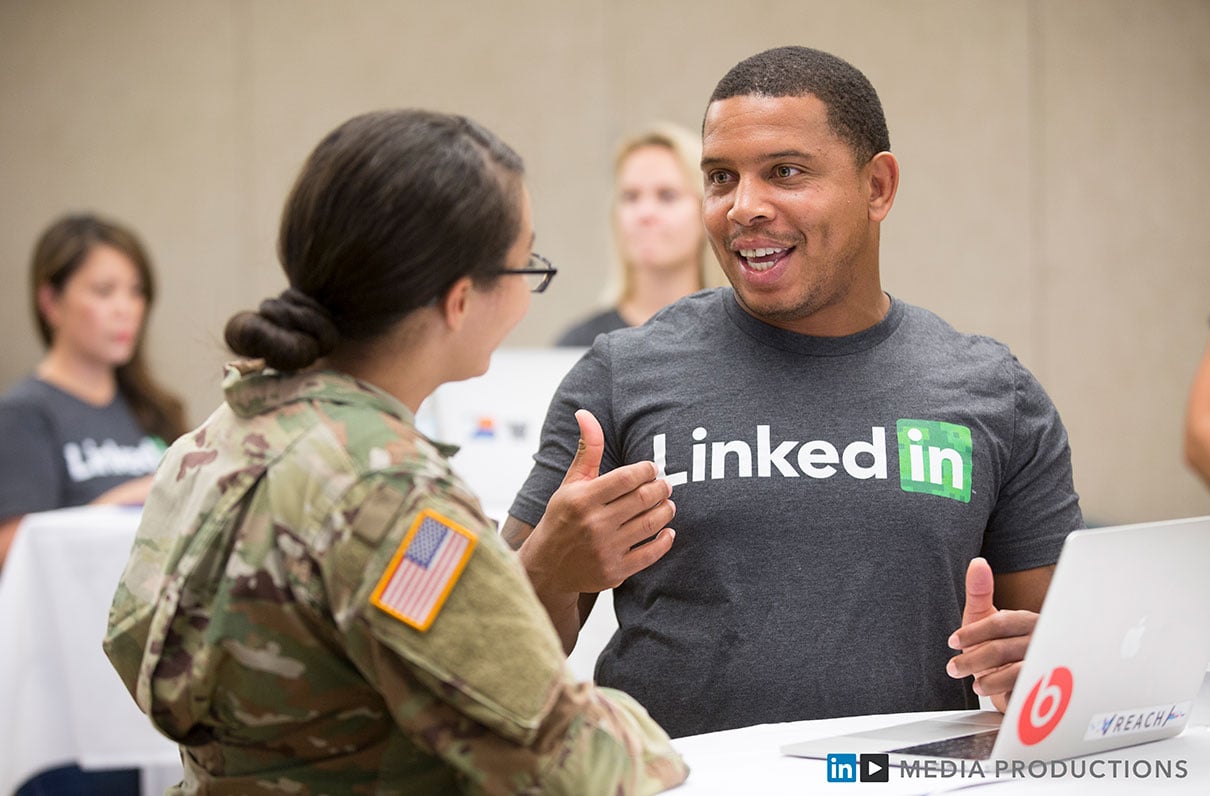A recent article at MOAA.org stressed the importance of a forward-looking professional online presence. If you’ve transformed the top of your LinkedIn profile from a uniform-clad “Transitioning Military Member” to an eye-catching pitch for prospective employers, you’re ready for the next step.
LinkedIn is often the centerpiece in a campaign to find a job. But is your LinkedIn profile helping employers find you, or is it hindering your chances of getting their attention? Your profile can be a significant boost to ensuring employers know what you bring to the table; a well-crafted presentation highlights you as a viable candidate and keeps you from being overlooked.
Check your profile for these four signals – if you find any, your LinkedIn presence may not be working as hard as you are:
[RELATED: MOAA on LinkedIn]
1. An Experience Section Full of Military-Speak
Is your professional experience section filled with military-focused language that would require explanation? If so, too bad. Your reader can’t appreciate what they don’t understand, and it’s a pretty safe bet they don’t need a Stryker armored combat vehicle.
Instead, think about the main skills required to do the job and put the focus squarely on them. For example, you can emphasize how your responsibilities required you to develop creative solutions for difficult problems, or how you effectively handled competing priorities while managing a high-profile project.
2. An Incomplete (or Irrelevant) Skills Section
You may have counterintelligence experience and be knowledgeable about defensive missile batteries, but does this reflect the skills and knowledge your target audience is looking for? The top three skills in this section should reflect the primary skills required for your objective – and desired by your target companies.
Skills in this section are important because they are used as search terms, so supply the right ones and help employers find you.
3. An Abundance of Details
Don’t try to make your audience an expert on the Navy/Army/Air Force/Marines/Coast Guard/Whatever. If the focus of your profile is to provide a detailed description about your organization or service, your reader will rapidly lose interest — they can get that information from a Google search.
The goal in your profile is to furnish just enough information to provide context so the reader both understands the skills you’ve highlighted and how you utilized them. The hiring manager reading your profile is primarily interested in you, not your organization.
4. Many Years of Experience … Maybe Too Many?
While it may seem like a good thing to reference your “26 years of experience,” and while experience level is highly relevant to prospective employers, it’s definitely possible to offer up too much of a good thing. If you’ve been working for decades already, it’s reasonable for a company to wonder how much longer you’re likely to continue doing so – and employers don’t want to be left high and dry.
Your many years on the job could also make you look too expensive for some employers, since no hiring manager thinks they’d be getting that level of experience for free. You can convey the depth of your expertise by simply saying that you are “highly experienced” or that you have “extensive experience” and avoid the extra baggage.
It doesn’t take a lot of effort to ensure your profile is properly tuned to help you as much as possible in your job search. Do your research to gain an understanding of what your target audience values most, and tailor your profile accordingly.
Want to know more? Check out the MOAA archive of career transition topics. Want some visual aids? Premium and Life members can access all the materials in MOAA’s webinar archive, including tips on marketing yourself for a second career. Learn more about joining MOAA or upgrading your membership at this link.
Jump-Start Your Career
Gain access to all of MOAA’s career tools available for you and your spouse.

